Introduction
Looking for the best electronics books for beginners?
Whether you’re a student, hobbyist, or someone curious about how electronics work, finding the right book can make all the difference.
In this guide, we’ve handpicked the top-rated and most recommended electronics books for beginners. These books simplify complex topics, cover practical examples, and are perfect for anyone starting from scratch.
If you’ve searched terms like best electronics books, electronics books for beginners, or best electronics textbook, you’re in the right place—this list is tailored just for you.
Why Books Are the Best Way to Learn Electronics
Books are reliable and structured learning tools.
Unlike scattered online resources, they provide in-depth explanations and practical exercises.
For beginners, books act as trusted guides in understanding core concepts.
List of Top 10 Basic Electronics Books
Quick table with the addition of publisher and year information:
| No. | Book Title | Author | Publisher | Year |
|---|---|---|---|---|
| 1. | Getting Started in Electronics | Forrest M. Mims III | Master Publishing | 1983 |
| 2. | The Art of Electronics 3rd Edition | Paul Horowitz, Winfield Hill | Cambridge University Press | 2015 |
| 3. | Practical Electronics for Inventors, 4th Edition | Paul Scherz, Simon Monk | McGraw-Hill Education | 2016 |
| 4. | Understanding Basic Electronics- 2nd Edition | ARRL | ARRL | 2005 |
| 5. | Beginner’s Guide to Reading Schematics, 3rd Edition | Stan Gibilisco | McGraw-Hill Education | 2013 |
| 6. | The Basic Soldering Guide Handbook | Alan Winstanley | No Starch Press | 2012 |
| 7. | Electronics All-in-One For Dummies | Doug Lowe | For Dummies | 2017 |
| 8. | Grob’s Basic Electronics | Mitchel E. Schultz | McGraw-Hill Education | 2015 |
| 9. | Electronics for Kids | Øyvind Nydal Dahl | No Starch Press | 2016 |
| 10. | How to Diagnose and Fix Everything Electronic, 2nd Ed. | Michael Geier | McGraw-Hill Education | 2015 |
Let’s deep dive into these beginner-friendly electronics books that will transform your understanding of gadgets and circuits!
1. Getting Started in Electronics by Forrest M. Mims III
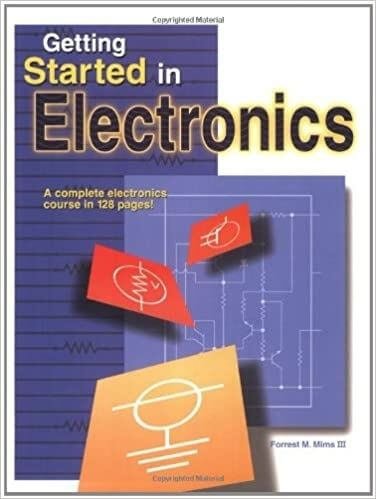
Why It’s Perfect for Beginners
Forrest Mims’ “Getting Started in Electronics” is a timeless classic for anyone exploring the exciting world of electronics. Known for its approachable style, the book simplifies complex concepts, making it ideal for beginners.
For a deeper understanding of resistors and their functionality, refer to our Introduction to Resistor: Beginner’s Guide, which complements this book’s content.
Key Features:
- Simple diagrams to visually explain concepts like current, voltage, and resistance.
- Hand-drawn illustrations that add clarity and charm to learning.
- Step-by-step projects that guide you to build real, functional circuits.
- Minimal text, maximum understanding—focuses on practical learning rather than theory overload.
- Covers essential components such as transistors, diodes, and capacitors in detail.
- Ideal for hobbyists, students, and anyone curious about how circuits work.
Why Beginners Love It:
- Many readers credit this book with helping them build their first working circuits without confusion.
- The real-world applications and simple language make it easy for beginners to understand.
- It bridges the gap between theory and practice, encouraging hands-on learning.
If you’re looking for additional learning materials, check out SparkFun’s Beginner Tutorials, which complement the lessons in this book with free resources and interactive projects.
2. The Art of Electronics, 3rd Edition by Paul Horowitz and Winfield Hill
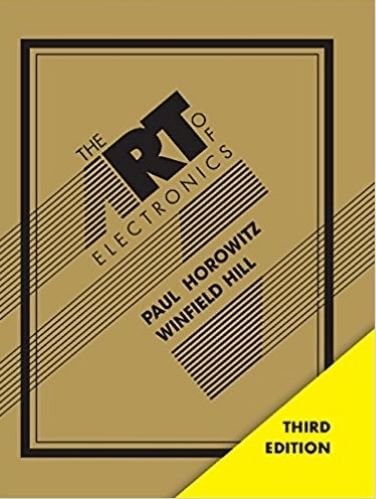
The Art of Electronics is often called as the definitive guide in the electronics field. Its third edition offers a structured blend of theory and hands-on application, making it accessible even to beginners.
Why It’s Ideal for Beginners:
- Comprehensive Coverage: The book covers topics from basic electronic components to advanced subjects like microprocessors, providing a holistic understanding.
- Updated Content: This edition incorporates modern electronics applications, ensuring relevance in today’s tech-driven world.
- Practical Focus: Difficult topics are explained in a simple way, focusing on real-world applications.
Real-World Impact:
Many electronics students and hobbyists consider this book both a learning tool and a reference guide. Completing it equips readers with a solid foundation in analog and digital electronics, serving them well into their careers.
For more resources, check out this MIT OpenCourseWare’s Introduction to Electronics.
3. Practical Electronics for Inventors, 4th Edition by Paul Scherz and Simon Monk
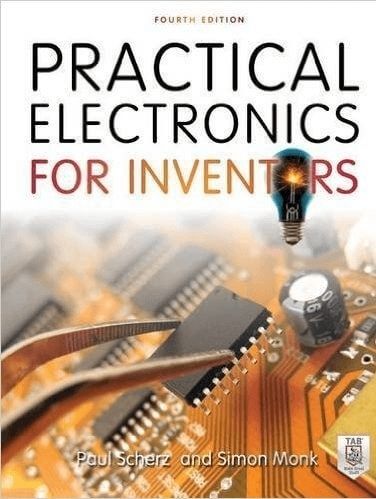
Practical Electronics for Inventors is a hands-on guide encouraging readers to design and build electronic projects.
Why It’s Great for Beginners:
- Comprehensive Learning: Starts with basics like voltage and current, progressing to building functional circuits.
- Interactive Approach: Features detailed illustrations and real-world examples for an engaging learning experience.
- Inventor’s Focus: Perfect for those eager to create their own electronic devices.
Real-World Impact:
Many DIY enthusiasts credit this book for enabling their first successful projects, such as amplifiers, sensors, or robotic components.
For a deeper understanding of circuit building, refer to our How to Build a Simple Electronic Circuit? which complements this book’s content.
4. Understanding Basic Electronics, 2nd Edition by ARRL
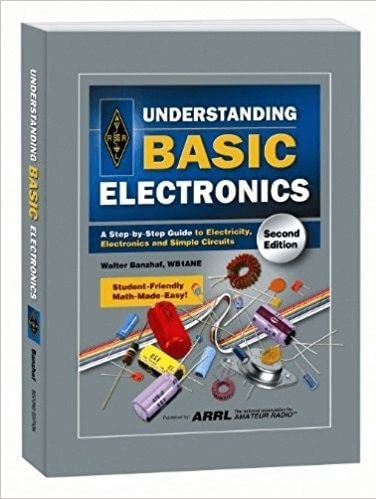
Understanding Basic Electronics is the perfect starting point for beginners, especially for those curious about practical electronics projects. This book, published by ARRL, a respected authority in the electronics community, makes learning fun and approachable.
Why It’s Perfect for Beginners:
- Core Concepts First: Starts with the basics, helping you build a strong foundation in key electronics principles.
- Beginner-Friendly Style: Explains each topic clearly and ensures you understand before moving on.
- Great for Self-Learners: Ideal for those without any prior experience in electronics.
Real-World Impact:
Many complete beginners have used this book as their first step into circuits and electronics. Its practical examples and focus on real-world applications make it a favorite for hobbyists, especially those interested in radio communication projects.
5. Beginner’s Guide to Reading Schematics, 3rd Edition by Stan Gibilisco
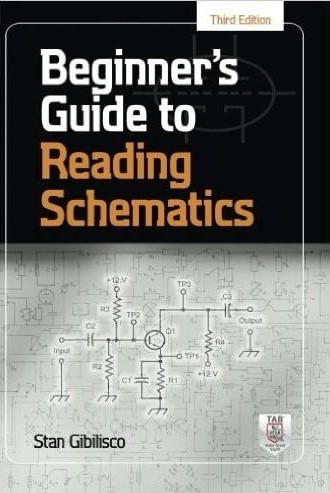
Beginner’s Guide to Reading Schematics is an essential resource for newcomers to electronics, simplifying the process of interpreting circuit diagrams.
Why It’s Great for Beginners:
- Focused Learning: Concentrates on the crucial skill of reading schematics, vital for building and troubleshooting circuits.
- Simplified Diagrams: Breaks down complex diagrams into easy-to-understand components.
- Comprehensive Coverage: Addresses both analog and digital schematics, providing a well-rounded understanding.
Real-World Impact:
Many readers, initially scared by circuit diagrams, have gained confidence through this guide, helping them progress with their electronics projects. It serves as a reliable reference, helping users understand each component and symbol.
6. The Basic Soldering Guide Handbook by Alan Winstanley
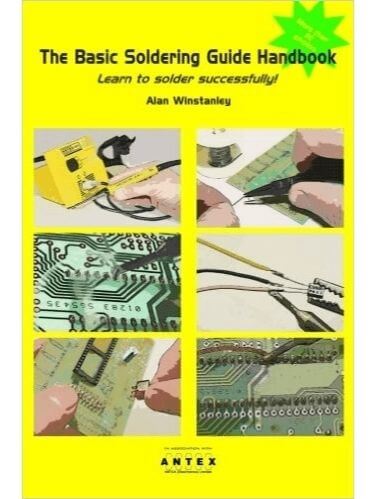
The Basic Soldering Guide Handbook is an essential resource for beginners eager to master the art of soldering in electronics.
Why It’s Great for Beginners:
- Comprehensive Coverage: From selecting the right tools to mastering various soldering techniques, this guide covers it all.
- Step-by-Step Instructions: Clear, concise steps help you create solid, reliable connections.
- Practical Focus: Ideal for those looking to build circuits or repair electronic devices.
Real-World Impact:
Many hobbyists, initially insecure about soldering, have gained confidence through this handbook. Following its guidance, readers have successfully built or repaired their first circuits without prior experience.
To further explore practical soldering skills, check out our Beginner’s guide: Introduction to Breadboard, which pairs well with these advanced books.
7. Electronics All-in-One For Dummies by Doug Lowe

Electronics All-in-One For Dummies offers a completely accessible introduction to the world of electronics, making it an excellent choice for beginners.
Why It’s Great for Beginners:
- Comprehensive Coverage: This guide spans from fundamental electronics concepts to advanced projects, allowing readers to progress at their own pace.
- User-Friendly Language: Written in the approachable style characteristic of the “For Dummies” series, it simplifies complex topics for easy understanding.
- Hands-On Projects: Includes practical exercises to reinforce learning and build confidence.
Real-World Impact:
Many readers with no prior electronics experience have successfully built their first circuits and grasped essential concepts through this book’s clear explanations and engaging projects.
8. Grob’s Basic Electronics by Mitchel E. Schultz
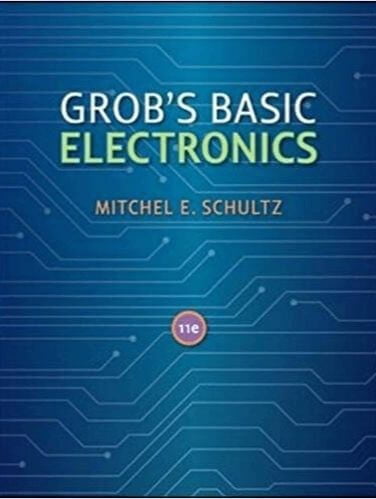
Grob’s Basic Electronics is a widely used textbook that introduces students to the fundamentals of electronic circuits. Designed for both classroom use and self-study, it serves as a useful tool for beginners.
Why It’s Great for Beginners:
- Structured Learning: The book is organized like a traditional textbook, making it ideal for students seeking a formal learning experience.
- Step-by-Step Examples: Filled with exercises that strengthen learning and build confidence.
Real-World Impact:
Many electronics students have used Grob’s Basic Electronics as their primary textbook, citing its clear explanations and helpful examples as key to their success in early electronics courses.
9. Electronics for Kids by Øyvind Nydal Dahl
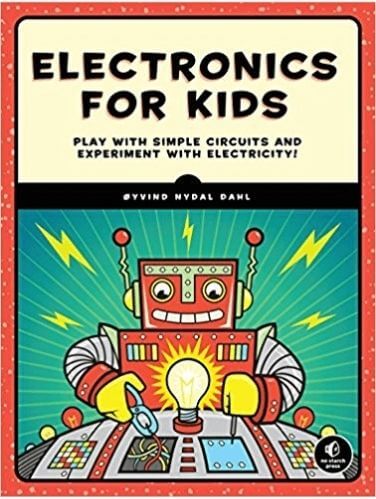
Electronics for Kids by Øyvind Nydal Dahl is a vibrant and interactive guide that introduces young learners to the world of electronics through engaging, hands-on projects.
Why It’s Great for Beginners:
- Practical Projects: Offers step-by-step activities that make learning electronics fun and interactive.
- Simplified Concepts: Breaks down complex ideas into easy-to-understand lessons suitable for children and beginners of all ages.
Real-World Impact:
Parents and educators have successfully used this book to introduce electronics to young minds, sparking curiosity and encouraging a love for STEM subjects.
10. How to Diagnose and Fix Everything Electronic (2nd Edition) by Michael Geier
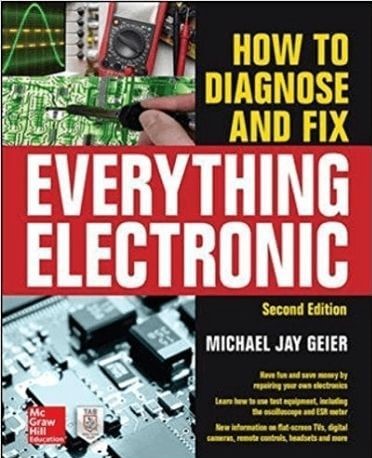
How to Diagnose and Fix Everything Electronic by Michael Geier is a practical guide for those eager to learn electronics repair.
Why It’s Great for Beginners:
- Comprehensive Tools and Techniques: Covers essential tools and methods for troubleshooting and repairing a range of devices, from small gadgets to larger appliances.
- Step-by-Step Instructions: Offers clear guidance on diagnosing common issues and implementing effective fixes.
Real-World Impact:
Many DIY enthusiasts consider this book a go-to resource for repairing their own electronics, including smartphones and home appliances.
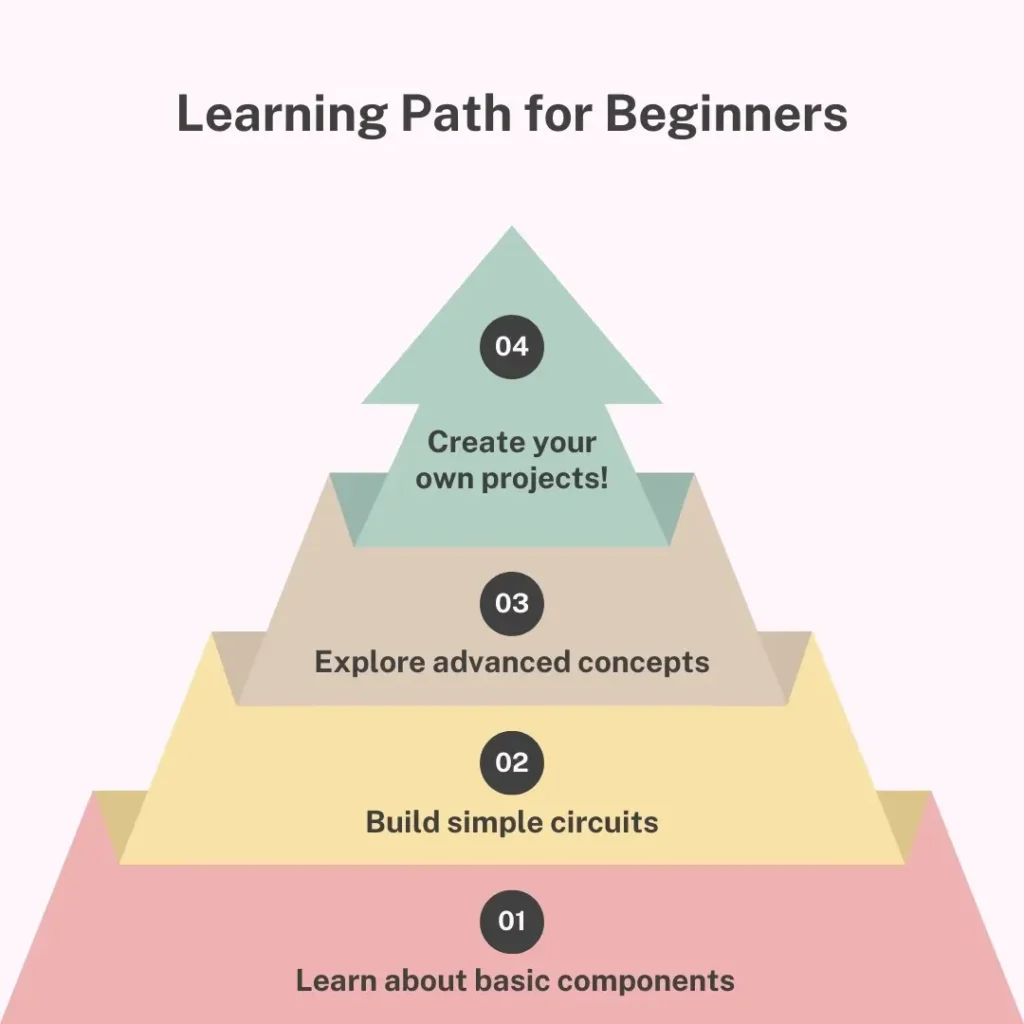
Conclusion
Electronics can seem daunting, but with the right book, it becomes an exciting journey.
Start with these beginner-friendly books and unlock your potential in electronics.
Ready to begin? Share your thoughts or book recommendations in the comments below!
Once you’ve gained knowledge from these books, consider applying your skills with practical projects like our Building a Robot with Arduino.